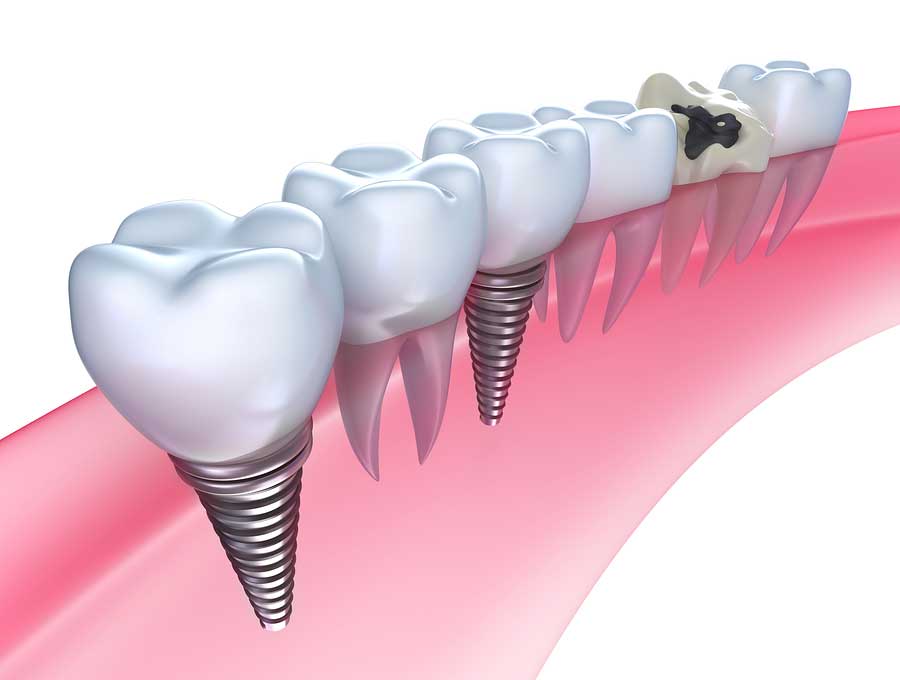Dental Implants
Replacing a missing tooth is highly essential to keep several drawbacks away. As suggested by dentists, the best way to replace missing teeth is by using dental implants. Implants are a combination of a ceramic crown and a titanium root that replaces a tooth in its entirety. They offer several excellent features, which makes them the most sought-after dental restorations.

What are the drawbacks of missing teeth?
- Missing teeth leave a gap in the jawbone, due to which the adjoining teeth can drift from their orthodontically right positions.
- When the teeth drift from their positions, it can lead to malocclusion. Sometimes, the teeth may loosen so much that it leads to further tooth loss.
- Patients with missing teeth find it difficult to bite and chew food. Also, their phonetics will be altered.
- Smiling with a missing tooth can be very embarrassing. People may mock you for it, which could lead to loss of confidence.
Why should you choose dental implants?
- Implants are the strongest tooth restorations. They are made from a durable metal such as Titanium and dental-grade ceramic to mimic the tooth crown.
- Implants offer excellent stability. Since they are anchored to the jawbone with the help of a screw-like implant post, they stay firmly in position and support the tooth crown.
- Implants do not wear a lot. Their ceramic crown may wear only as much as the natural enamel.
- The implant stud completely fills the gap left by the tooth root. Thereby, it prevents teeth drifting and also holds the jawbone intact by not allowing it to shrink or deteriorate.
- The best feature of an implant is its amazing aesthetics. The crown can be customized to accurately mimic the appearance of a natural tooth in terms of texture, shape, color, and transparency.
- Oral functionality, i.e., biting, chewing, speech, etc. will be restored to normal.
What is the procedure involved?
The dentist will check your candidacy during the initial consultation and determine whether or not an implant can be placed in your mouth. The dentist will also take scans and x-rays of the oral cavity to determine the spacing available for the implant, and share the data to a dental laboratory for fabricating the crown. Local anesthesia all be given to numb the teeth, gums, and jawbone, after which a small hole will be made in the jawbone in place of the missing tooth. The implant stud will be placed in it and secured firmly with dental cement.
After a healing period of a few months, a second surgery will be scheduled for placing the crown on the implant. A connecting element called the abutment is used for this purpose. The crown will be placed on the implant and checked for the perfect fit. If any changes are required, the dentist will make them before bonding it permanently using dental adhesives. A bite test will be conducted, and the implant crown will be polished.
To have a consultation with our dentists, please schedule an online appointment or call us at (773) 880-5080, and we will be happy to help.
2845 N Sheridan Rd #914
Chicago, IL, 60657
Stone Dental Group-SE Chicago Dentistry
2845 N Sheridan Rd #914
Email: [email protected]
Tel: (773) 880-5080
MON : 9:00 am - 5:00 pm
TUE - WED : 10:00 am - 7:00 pm
THU : 9:00 am - 5:00 pm
FRI : 9:00 am - 4:00 pm
SAT : 9:00 am - 3:00 pm
SUN : Closed
